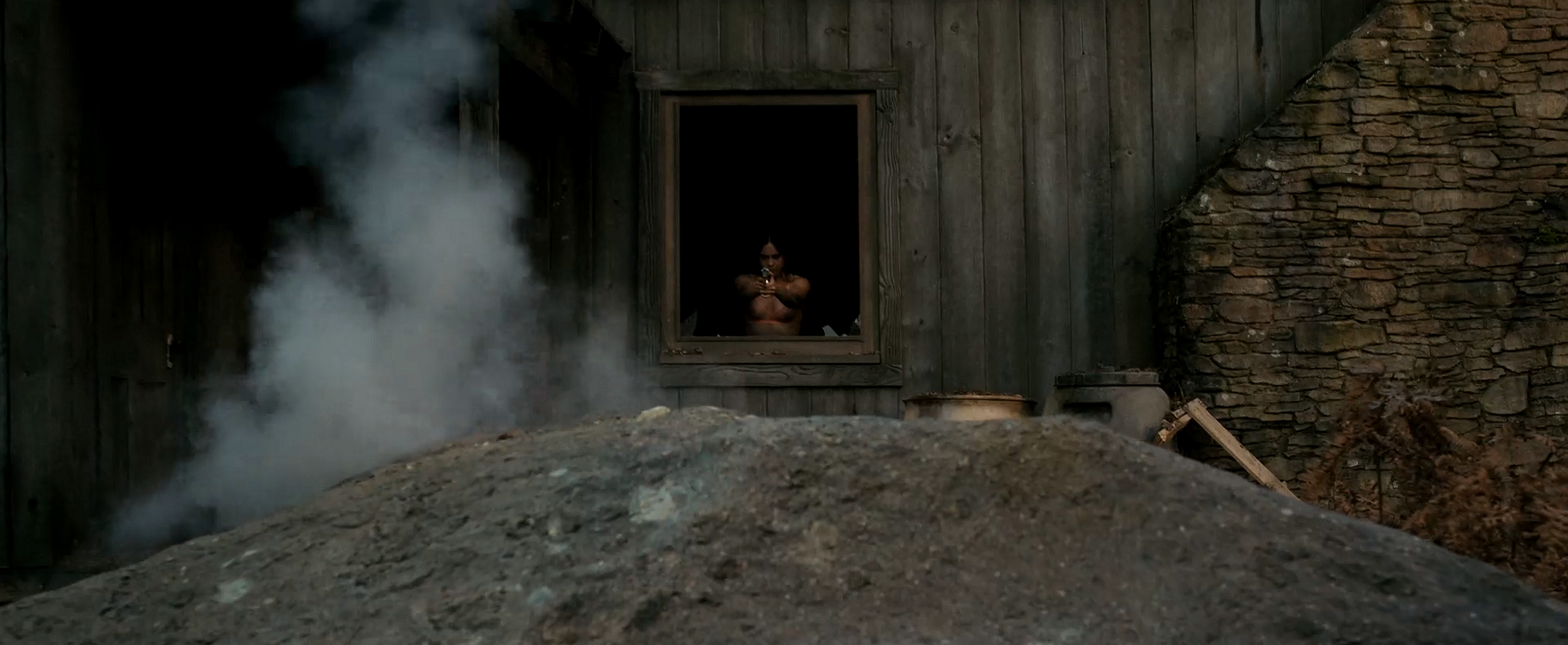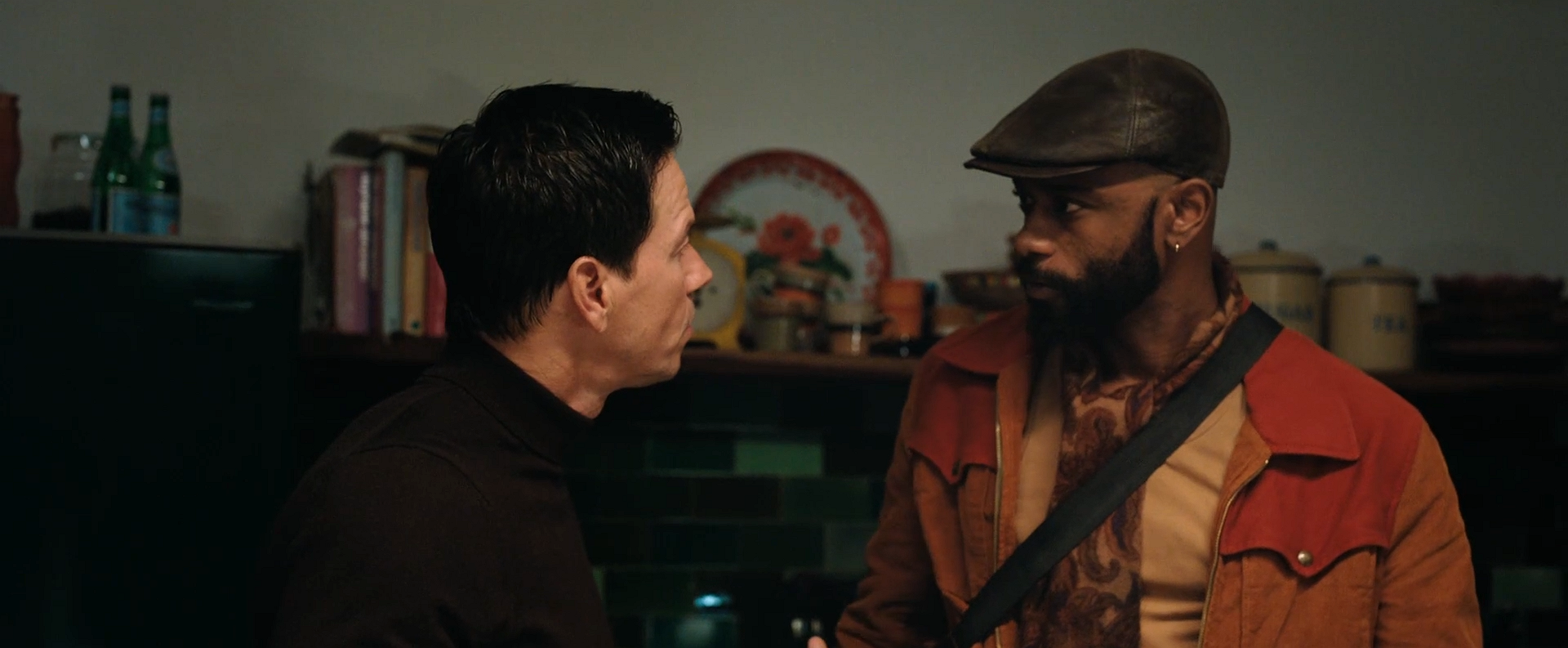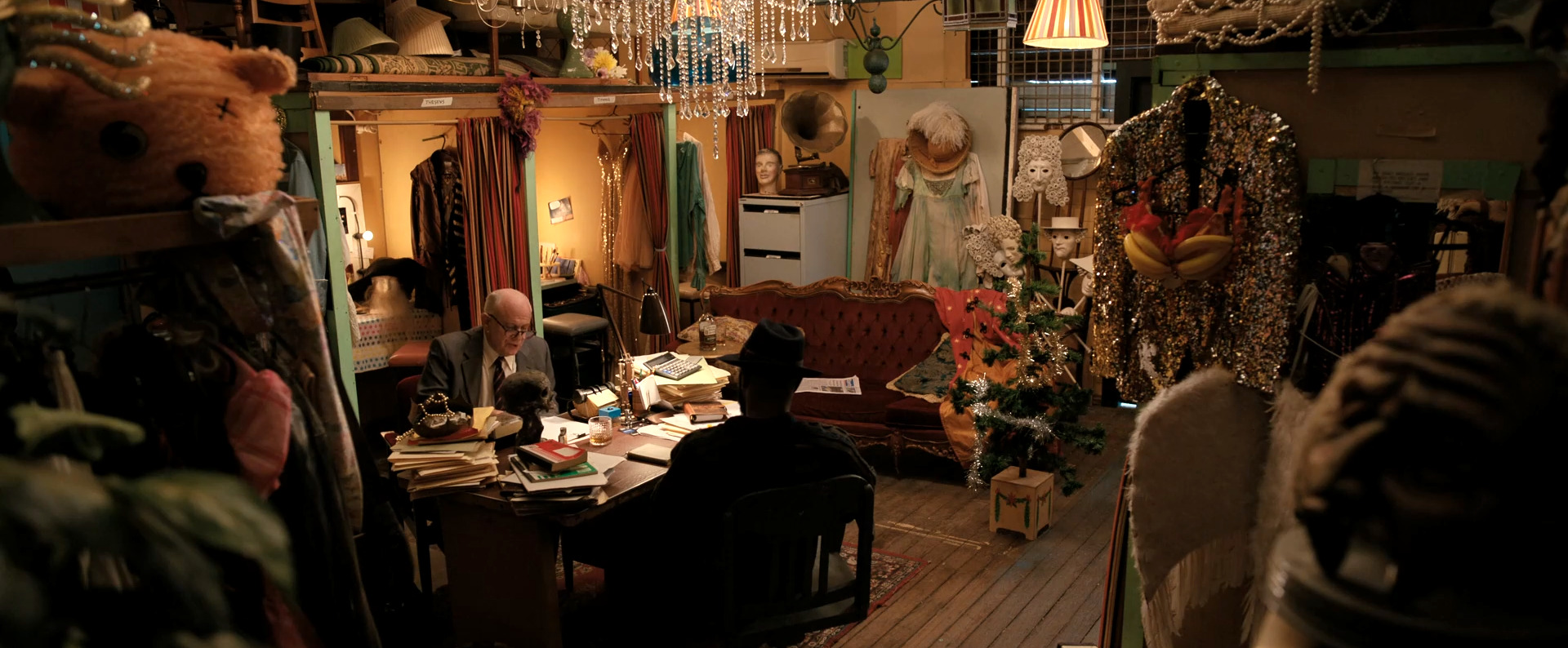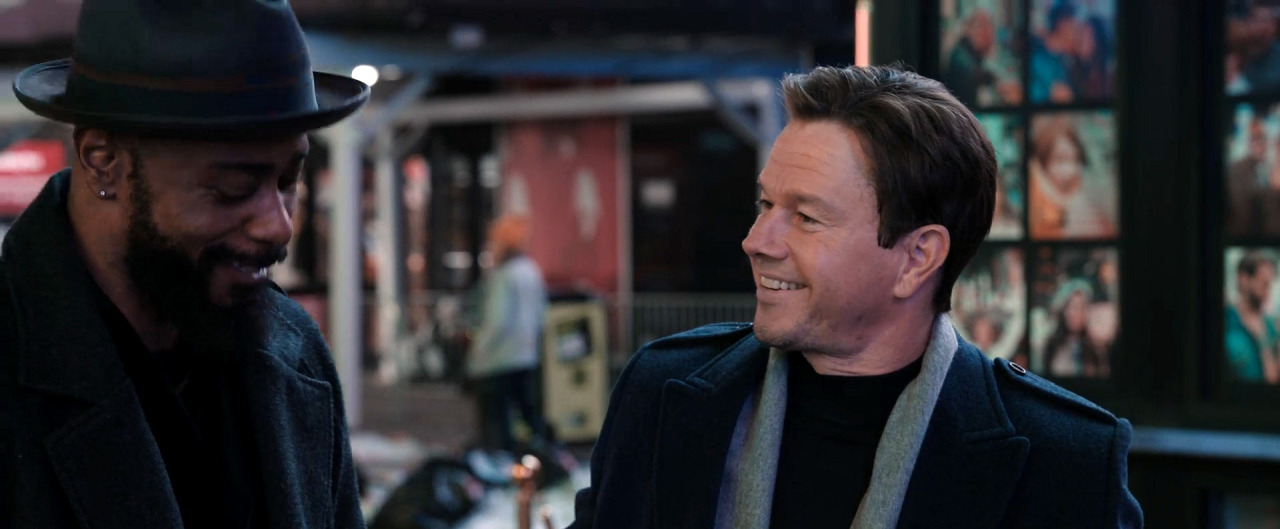tough business:
a parker site
Play Dirty: A Love Letter to the Richard Stark Novels

Play Dirty (2025) gets right to the heart of the novels. An expertly assembled showcase of moving pieces, Shane Black's latest film is an ode to Richard Stark's most enduring creation. Met by lacklustre reactions from some fans upon announcement, the finished product promises both entertainment and real passion for the source material.
From the moment Zen starts gunning down the other thieves in their hideout, it’s clear that this opening betrayal takes inspiration from The Sour Lemon Score, made even more apparent by Parker crashing through a window the same way he does in the novel to escape George Uhl. At first glance, Zen seems like a stand-in for a Lynn type, a love interest who betrays Parker from the start. But it’s much more apt to say she’s this film’s Uhl, especially when the wife of one of Parker’s murdered allies asks him to get revenge on Zen for his death, mirroring a near-identical scene with Grace Weiss in the novel.

Mark Wahlberg does an admirable job as Parker, so much so that it is nearly impossible to imagine Play Dirty with anyone else in its lead. It is a performance that leans into all his strengths as an actor, and the blue-collar persona he embodies – his Parker is cold, blunt, taciturn, never hugely expressive, but quick and clever, too. The film makes a point of Parker following his own sense of morality, and the clear divide between his personal dislike of Zen and his understanding of her cause makes for a layered portrayal.
If Parker's sense of betrayal at Zen's actions drives the plot forward, then his dynamic with Grofield constitutes the film's emotional core. LaKeith Stanfield's Grofield seems to have stepped directly off the page, but his chemistry with Wahlberg elevates the film to new heights. They play off each other with startling ease, creating an air of familiarity and intimacy between the characters that Richard Stark himself had only ever achieved in the final novel of the original series. Time doesn't allow for the slow build-up their relationship had gotten in the books, but the history is all palpably there.
That sense of intimacy is so potent, and Grofield is so evidently framed as the closest of Parker's allies, that a conversation with Claire from The Rare Coin Score is referenced but her worries are given to Grofield when he expresses that Parker's walking on ice. The push-and-pull of their every interaction, their trust in each other, their concern for each other's well-being all give Play Dirty necessary and vivid depth.

Grofield’s introduction starts promisingly with a title card telling us we’re in Mead Grove, Indiana, and stays true to the novels with a word-for-word adaptation of his initial appearance in Butcher’s Moon. Stanfield immediately and fully embodies the character from his first lines, and from the presence of Grofield’s barn theater to his speech patterns, his Grofield resembles Stark’s original creation completely. Theater is Grofield’s ultimate passion, and arguably running a theater like his in the present day shows an ambition that only the greatest theatrical purist could possess. Play Dirty understands Grofield even beyond the persona of an incurable flirt he has in the novels, down to his anxious but passionate core.

The film stays true to the series' principles, but one of its few missteps lies in the portrayal of violence. Richard Stark was certainly no stranger to violence, after all The Man with the Getaway Face boasts a decapitation and Butcher's Moon very much lives up to its title, but Play Dirty relishes in bloodshed. Stark's violence is always necessary; blunt and unadorned and the only means by which Parker can accomplish whatever the job at hand requires. In translating the novels to a visual medium, a tendency to sensationalize Parker's skills can be understandable but the film's fight scenes rely heavily on the 'cool factor' of a typical action movie rather than a dedication to practicality.
Parker’s speech about his childhood seems like a way to make audiences relate to him at the expense of staying true to his character. It’s certainly implied in the novels that Parker had a rough childhood, but the method and purpose of the speech here is more of a shortcut to explaining Parker than something that naturally develops his character. Stark always showed Parker’s humanity in understated ways, more through his emotions and relationships than long speeches – in fact, it’s intentionally shocking when Parker gives one in Butcher’s Moon, and it’s used to show how far he’ll go for someone he cares about.
Similarly, Parker’s speech to Lozini at the end of the film undermines his motivations as a character. His reason for going up against the Outfit in The Hunter is to take back the money that was stolen from him, and then in The Outfit to settle the grudge they have against him. These events appear to have happened the same way before we meet Parker in Play Dirty, so his desire to destroy the Outfit just to see if he can comes out of nowhere. Parker’s a workman – his motivation has always been profit because he’s doing a job, and it isn’t until the end of the series that we see him motivated by sentiment rather than money.
What the film really succeeds at is capturing Parker's status as the ultimate outsider. Donald Westlake had once proposed that it was his rejection of society that had captured the hearts of readers, and Play Dirty goes to great lengths to drive that point home. In many ways, it is the most accurate adaptation of the character to have ever made it to the screen, and nowhere else is that more evident than in Zen's last scene. Parker doesn't just explicitly state that he was pretending to like her, but his rejection of the fantasy she builds up as a potential future together firmly establishes his place outside the confines of domesticity. More so, loyalty is showcased as one of Parker's defining traits when he keeps his word to Grace Webb and gets revenge for his associate's death, though he still does not seem to understand the sense of home and family Grace and Philly Webb had. If anything, Parker belongs alongside a fellow outsider.
Play Dirty’s finale establishes the importance of one particular person in Parker’s life, the person he seems to be most concerned about and most at ease with: Grofield. Their banter comes easily and they’re most comfortable being open with each other, something the film has in common with the novels. In the end, Grofield’s the one Parker leaves with – not a woman – centering him as the most important person in Parker’s life.

Ultimately, Play Dirty is a love letter to Stark's books. Perhaps the Parker adaptation most concerned with novel accuracy, the film is a real treat for fans and stands incredibly well on its own even among classics like Point Blank (1967) and The Outfit (1973). Whereas Point Blank doesn't use a word of dialogue from the novel that had inspired it, Play Dirty captures not just the essence but the very fabric of Parker's world despite its status as an original story. It's a display of great filmmaking, and an adaptation truly deserving of using the Parker name rather than one of the many stand-ins that had appeared over the years.